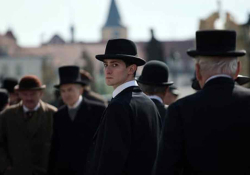Telling Stories in Contemporary Spain: A Survey of Women Writing Literary Journalism


Left: Rosa Motero, photo by Violeta Lama. Right: Empar Moline, photo by Jordi Play.
Of the many trends in literary journalism today, the use of humor to convey sociocultural critiques continues to be one of the major forces in work by Spanish women.
The tradition of literary journalism in Spain stretches back to at least the nineteenth century, when Mariano José de Larra regularly wielded his often-biting satire to comment on current events and customs. Since then, male writers have tended to dominate Spanish journalism, particularly in the general-interest press. With the exception of a handful of nineteenth-century trailblazers, most women writers either wrote poetry, prose fiction, or participated in such nonfiction publications as fashion and home magazines until the early twentieth century. At that time, writers like Emilia Pardo Bazán and Margarita Nelken distinguished themselves as journalists and feminist activists.
These female literary journalists often reveal facets of their culture that would otherwise be invisible, and they do so with heavy doses of sarcasm and irony that work to entice a public jaded by political corruption, economic crisis, and a popular mass culture that is often vacant of meaning.
Although the early women's movement was interrupted by the civil war (1936–39) and experienced a long, oppressive hiatus under the authoritarian regime of Francisco Franco (1939–75), women's voices began to appear in magazines and to be heard on the streets in the late 1960s, and became more present in public discourse after Franco's death in November 1975. The death of the dictator, and with him the authoritarian regime that trained women to be good, Catholic wives and mothers, led to an unprecedented opening of Spanish culture and society, a quick and mostly nonviolent transition (1975–82) from authoritarian rule to a constitutional monarchy, and more rights for women. No longer subject to state censorship, print journalism played a prominent role in reflecting and shaping the changing society. It especially provided a medium through which women could participate in public discourse and begin to make their voices heard on issues as important as women's rights, abuses in prisons, or labor struggles.
Since this key moment in history for Spanish women, and for Spaniards in general, female journalists have continued to collaborate in general-interest periodicals as well as in specialized publications.[1] Indeed, the first decade of the twenty-first century has seen an increase in the visibility of women journalists who contribute regularly to general-interest newspapers with regular columns, essays, special reports, in-depth interviews, and chronicles. Four of the more prominent female journalists who have been writing literary journalism throughout the last decade illustrate some important trends, while specific examples of work by two of these writers show how this genre provides a unique space for them to communicate a deeper and more nuanced sociocultural understanding of the complexities of a specific event or topic while also helping to make contemporary issues more accessible to the general public.
•
While many readers of literary journalism from the United States will be familiar with the long report that is often published as a monograph, in the vein of Truman Capote's In Cold Blood, in Spain this genre is much less common, being surpassed by the column or opinion article, the essay, and even the interview and the literary chronicle. As Albert Chillón points out, the novelized report is not as common because it has not been supported as much by the market or the journalism and publishing industries in Spain as it has been in the United States.[2] There are exceptions, of course, as in the case of Montserrat Roig's acclaimed report Els catalans als camps nazis (1977; Catalans in Nazi concentration camps). Still, in terms of women, or even men, writing long-form literary journalism, the institutional support and tradition has not been strong. However, despite the fact that Spain has not produced a canon of such monographic texts, Spanish writers practice literary journalism as a matter of course in their daily or weekly essays, chronicles, articles, columns, and interviews.
Such is the case with many contemporary Spanish journalists, particularly those who also write fiction. These are the columnists, the contributors to the Sunday supplements, but they are also writers who go on field assignments, serve as war correspondents, or write essays on the latest political or cultural issue that occupies public discourse. Some of them also write blogs where they collect pieces from both their fiction and nonfiction work. Literary journalism provides them a space in which some of the constraints of writing a straight news article are lifted, freeing the writer to focus on the details of the topic in order to communicate a deeper understanding of the complexities of that topic to the reader.
Among the women who write literary journalism, several have gained visibility nationally and abroad, including Empar Moliner (b. 1966, Barcelona), Elvira Lindo (b. 1962, Cádiz), Rosa Montero (b. 1951, Madrid), and Maruja Torres (b. 1943, Barcelona). Of these writers, Moliner, Lindo, and Montero studied journalism at university, whereas Torres did not pursue university studies but learned her craft on the job from a young age. All four writers began in journalism before publishing any fiction, and all use humor in their work—irony, satire, and parody in particular—to make effective sociocultural and political critiques. In addition to print journalism, Moliner and Lindo also have worked in radio and television, and Lindo is well known for her children's series Manolito gafotas (1994; Eng. Manolito Four-Eyes, 2008).
The keen critical eye and the unique perspectives they bring as well as the entertaining way in which these women dispense social, cultural, and political commentary provide insight into topics as diverse as the challenges of finding work as a maid (Moliner), the lack of national unity in Spain (Montero), the economic crisis in the eurozone (Torres), or the business blunders of the royal son-in-law (Lindo). Their literary journalism brings to the forefront stories about everyday life that wouldn't otherwise be heard, but that come to define collective cultural identities. Literary journalism opens a space for these writers to report on important news items, cultural trends, and social problems in a way that builds a narrative about the society in which they live and creates a forum for individual perspectives in public discourse, feeding into the collective creativity of the new media through a form of the old media.
For example, in her collection of essays Busco senyor per amistat i el que sorgeixi (2005; In search of a man for friendship and possibly more), Empar Moliner reveals the inner workings of the hiring process for immigrants looking for work as maids, consults a fortune-teller on the future of the Catalan language, tests the practicality of the municipal government's campaign to get people to walk more, and checks out a dating service, all with the purpose of reporting her findings to the public. She does so with a wry wit and an air of adventure as she takes to the street to find out what's happening in Barcelona. In her essay about the immigrant women looking for work as maids, "¿De quin país la vol?" (From which country do you want her?), Moliner places herself in the scene as she describes what she observes (see sidebar on page 59 in the print edition). Unlike most essays in the collection, Moliner does not give much explicit commentary about her experience. Instead, she lets her interactions with the women speak for her. For example, Rosa, a Peruvian woman who volunteers at the convent, explains that many of the women who arrive there have been taught to be submissive and to accept sexism. She recounts the story of one Peruvian woman in particular whose husband brought her and their children to Spain and then left them there while he returned to their country for another lover. Rosa also explains that 660 euros ($840) is about the maximum that women get paid to work as live-in maids.
Through Rosa's eyes, Moliner, and the reader, glimpse the reality of finding a job as a female, Spanish-speaking immigrant in Barcelona. Immigration and the status of immigrants consistently appear in Spanish newspapers as important political, social, and cultural issues. Moliner's essay provides insight into one aspect of the experience of immigrants in Barcelona and allows readers a peek into a place most will never set foot. Because she tells the story of her experience with a fiction writer's style but a journalist's eye for factual details, readers relate to the personal stories of the women she encounters while also being prompted to consider another perspective on a contemporary social topic.
While a number of essays in In Search of a Man cover serious news topics, others highlight and make fun of contemporary cultural practices, such as Moliner's experience at a dating agency, recounted in the essay from which the collection takes its title. Moliner describes her experience replying to a series of detailed personal questions, including "How important is sex to you in a stable relationship?" on a scale of one to five, to which Moliner replies, "If I say five, will I look bad?" but ends up answering, "four, because I'm feeling romantic this year." In the end, rather than paying for the service to get the name of her match, Moliner uses the public forum of the newspaper to send a message to the guy, asking him to write to her immediately if he happens to be reading the article. Her use of humor throughout the essay serves to communicate her opinion that real connections occur through direct contact rather than by answering questions in an office or online.
These serve as just two examples of Moli-ner's "gal on the street" style, but much of her work in her other essay collection, ¿Desitja guardar els canvis? (2006; Do you wish to save changes?), her regular articles for El País, her contributions to radio and television, and her short stories reveal the similarly direct and often sarcastic tone with which she informs and entertains her public.
Similar to Moliner, Maruja Torres is known for her sharp wit as well as her keen and, at times, offbeat observations. And although Torres is from the generation of Moliner's parents, she maintains a contemporary viewpoint in her columns for Spain's national newspaper, El País, and her blog (marujatorres.com). Torres spent more than twenty years working as a journalist before publishing her first work of fiction, in 1986, and took on a variety of assignments, including war correspondent in Panama and Lebanon. Both of these assignments inspired creative nonfiction works: Amor América (1993; Love for America), a travel narrative about her time in Latin America, and an autobiographical novel about Beirut, La amante en guerra (2007; The lover at war). Torres has published one collection of articles from her work at El País, Como una gota (1995; Like a drop of water) as well as an autobiography of her experience as a journalist (Mujer en guerra (1999; A woman at war), along with several short stories and award-winning novels. In 1989 she received the Francisco Cerecedo award, Spain's most prestigious journalism prize, and in 2004 she was awarded the Manuel Vázquez Montalbán International Journalism Award. Torres continues to actively contribute regular columns and chronicles to El País, where she puts her barbed criticism to work against social, cultural, and political problems of the day. Her texts are generally dense with references to popular culture, but for the careful reader her work provides a hilarious alternative to traditional news reports. Her humor, however, should not be mistaken for flippancy or superficiality. On the contrary, the discerning reader will recognize that among her clever wordplay hide serious reporting and a well-informed opinion.
In addition to her reports and articles on various topics, Torres has often written a series of columns for the Sunday supplement of El País, generally in the form of essays, in which she chronicles and comments on the world around her. Some past titles include, "Hogueras de ago-sto" (August bonfires), "Alta en nicotina" (High in nicotine), and "Nosotros a lo nuestro" (Doing our thing). Her most recent series, "Perdonen que no me levante" (Excuse me if I don't get up), includes essays about democracy in Egypt, the eurozone crisis, and the November elections in Spain. In this last example, titled "Un día señalado" (A special day), Torres focuses on the poor choice of dates (November 20, 2011) by the Socialist Party for the Spanish elections, noting that she is sure the party has been infiltrated by a spy who is determined to take them down by inspiring bad judgment. She complains that the date is not in poor taste because it marks the anniversary of the dictator Francisco Franco's death in 1975—that would be too obvious—but rather because "on this day, but in 1841, Victor d'Hondt was born in Belgium, and instead of dedicating himself to making chocolate, he invented the proportional electoral system for determining seats in parliament that Spain continues to employ, despite the repeated calls for reform by the smaller political parties." Torres turns a seemingly ridiculous complaint about a date into a criticism of the electoral system and the depressing prospect, in her opinion, of a conservative win. Her style allows her writing to function at different levels. For those interested mostly in her caustically witty criticism, her essays prove to be highly entertaining. For the reader willing to dig below the surface and unpack the linguistically, and sometimes culturally, dense paragraphs, a whole other writer is revealed. Perhaps the combination of entertainment and analysis that her essays often provide is one reason that she remains one of the more popular and beloved members of the team of journalists at El País.
•
While texts from fields including history, political science, cultural criticism, and literature can offer a wealth of information on Spain and its people, literary journalism often combines aspects of many of these disciplines to present a fresh way of imagining Spanish culture(s) in the twenty-first century. The female literary journalists discussed here, and others not mentioned, often reveal facets of their culture that would otherwise be invisible, and they do so with heavy doses of sarcasm and irony that work to entice a public jaded by political corruption, economic crisis, and a popular mass culture that is often vacant of meaning. By combining the best characteristics of the new and old media, these women, along with their male counterparts, work to revive the ancient tradition of storytelling in support of a richer public discourse.
Knox College
1 For a more complete summary of the trajectory and characteristics of literary journalism in Spain, see Sonia Parratt's excellent article, "Literary Journalism in Spain: Past, Present (and Future?)," in Literary Journalism Across the Globe, ed. John S. Bak & Bill Reynolds (2011).
2 Albert Chillón, Literatura y periodismo: Una tradición de relaciones promiscuas (Bellaterra: Universitat Autònoma de Barcelona, 1999), 358.










